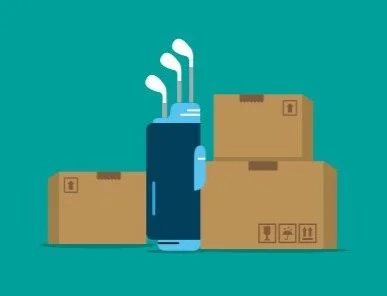Clutter or Storage?
Clutter refers to the disorganized of objects that accumulate in our living areas. It is a collection of items we don't necessarily use or enjoy, but hold on to anyway. If we don’t love or use it, it is clutter.
Did you know that clutter and mental health are connected. Are you able to easily find what you want or need? Do you need to sort through piles of clothes in a corner or floor to find the item you want to wear? Do you buy new items to replace ones you've lost somewhere? Or does your stuff at times lead to feelings of stress and overwhelm interfering with the joy of your daily life. Do you find yourself saying, “I’ll get to it eventually.”
Accumulating a few extra things may not seem unhealthy, but clutter can begin to have a negative impact on our holistic health. Our stuff can increase stress levels, inability to focus, and impact our self-esteem and relationships.
Ideally, our home is a place of sanctuary where we rest, relax, and re-charge. Extra stuff can make it hard to do that. Studies have found that women who reported more clutter in their homes had higher levels of the stress hormone cortisol compared to women who had less clutter.
Research shows that people with cluttered homes tend to procrastinate on important tasks. Our brains can only focus on a limited amount of stimuli at a time. Clutter can actually make it harder for us to think clearly. Having to dig through stacks, drawers, piles, or boxes feels overwhelming to start and to complete new projects.
Loved ones may argue over whether one person's stuff is taking up too much space. Research has found that background clutter made it more difficult for participants to accurately identify the emotions expressed on the faces of movie characters. At times there may be relationship strain if one’s collections takes priority over another’s expressed feelings. Too much stuff can create misunderstanding and poor communication.
In a 2016 study published in the Journal of Environmental Psychology, researchers suggest that our home is more than a space where we live. Instead, they suggest that home is a constellation of situations, experiences, and meanings. The individual shapes these experiences, but they are also shaped by them.
It's often a huge job to get rid of things, which can be physically and mentally exhausting. Objects remind us of important memories, hopes, and dreams. We keep clothes that no longer fit because we hope to lose weight. We hang on to old brochures because we want to dream about travel. We keep childhood and family objects we associate with fond memories. We are often afraid of feeling guilty about releasing sentimental value. Or what if as soon as I get rid of something, I may need it later on? Possessions, even if they don't use them, often bring a sense of safety and security that can be painful to release.
Clutter is so more than just an object. Do you resonate with these feelings or experiences? Did you say, “Ohhhh, unfortunately, that’s me”?
Need help? Consider hiring a professional organizer with grief work experience like myself to help you sort through the object, the emotion, and ways to release or to re-home memories for greater peace of body, mind, and spirit.

